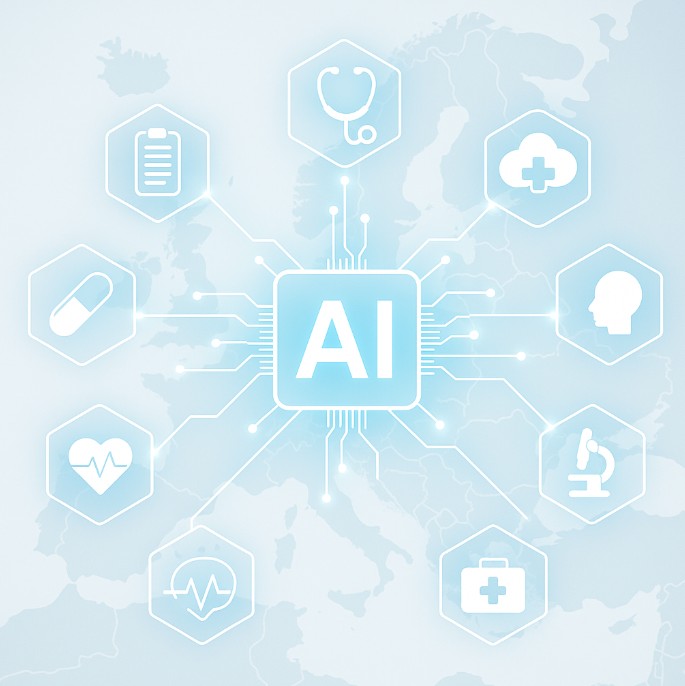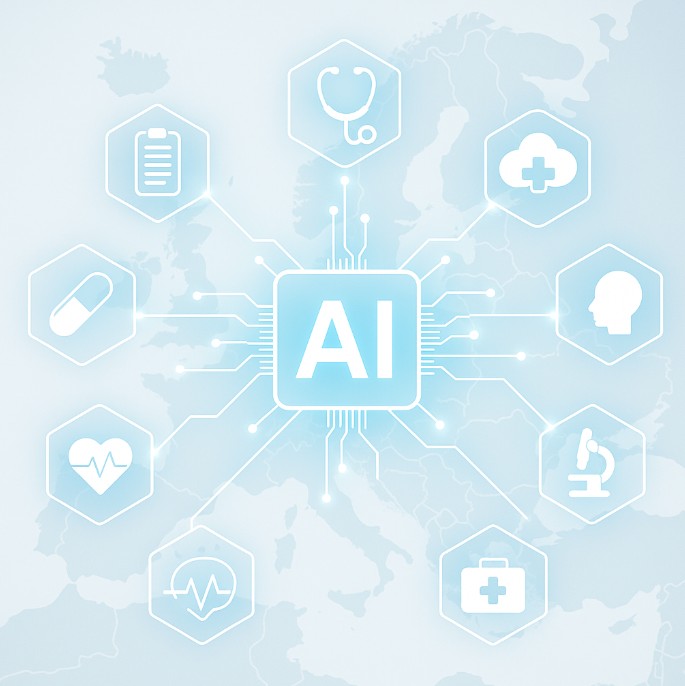Written by: Janne Pullat, Head of Health Data at Metrosert

Decentralized artificial intelligence (AI), combined with blockchain technology, is becoming an increasingly important approach in health data analysis, where data sensitivity, lawful usage, and collaboration among multiple parties are central. Instead of the traditional method of moving data to the models, decentralized architecture enables training models directly at the data location—such as hospitals or research centers. This helps reduce privacy risks and increases data owners’ control, while supporting the development of high-quality, collaborative models.
Blockchain is used in such systems to create a trustworthy cooperation framework: every operation is transparently and immutably logged, allowing parties to track how and for what purposes models have been trained. Several recent studies have shown that this approach can achieve similar or even better accuracy compared to centrally trained models—for example, in interpreting COVID-19 images or analyzing retinal changes. The role of blockchain is primarily to ensure a secure, transparent, and reliable collaboration environment.
Decentralized AI also offers better opportunities for analyzing rare conditions, which often require data from multiple hospitals. Since data does not need to move to a central server, collaboration is possible even in cases where data sharing would be legally or ethically problematic. This approach also supports scientific reproducibility by using open-source models and transparent training logs.

This approach benefits not only science and the system but also doctors on an individual level. Decision support tools based on more diverse and up-to-date models have higher clinical reliability. This means better support in complex treatment decisions, fewer time-consuming routine tasks, and more opportunity to focus on patient interaction. Additionally, transparent data management structures help avoid situations where doctors must make decisions based on limited context or unknown data provenance.
At the same time, implementing such systems requires attention to technical and practical limitations. For example, blockchain use may increase computational load, and more complex systems may require additional coordination of data management to ensure scalability and performance. These challenges are surmountable but demand thoughtful architectural design and collaboration among IT specialists, data protection experts, and healthcare institutions.
The European Health Data Space (EHDS) creates a suitable framework for such applications. EHDS aims to harmonize secondary use principles across the EU by establishing secure and standardized access for researchers and developers. Decentralized AI solutions fit well within this framework, enabling collaborative models that do not require data movement but meet high trust and transparency requirements.
Estonia’s digital health system has several prerequisites for piloting such models: a unified data exchange infrastructure, a mature e-health ecosystem, and international collaboration experience. Such a pilot project could also clarify practical EHDS implementation in the context of a small country and offer a scalable example at the European level.
In conclusion, decentralized AI combined with blockchain technology enables the development of secure, reliable, and collaborative solutions that support research, innovation, and better patient experience. For doctors, this can mean more time-efficient and substantively better-supported clinical work. Successful implementation requires balanced consideration of technical, ethical, and regulatory aspects—but the potential this approach opens in health data use is significant.
Sources:
Kasralikar, P., Jain, V., Pathan, R. K., Shaikh, H., & Kumar, R. (2025). Blockchain for Securing AI-Driven Healthcare Systems: A Systematic Review and Future Research Perspectives. Cureus, 17(4), e83136. https://doi.org/10.7759/cureus.83136
Nugraha, S., Raharja, S., Rachmawati, D., &Huda, M. (2025). Decentralized AI: Leveraging Blockchain for Trustworthy Machine Learning Models. Journal of Innovation in Educational and Research, 5(2), 182 196.
https://jier.org/index.php/journal/article/view/2753/2246
